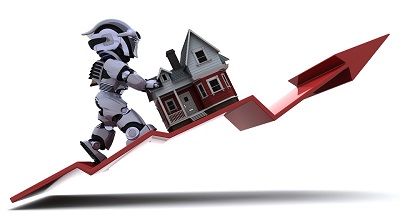5 Ways to Supercharge Your Property Depreciation Deductions

SPONSORED BY Blogger: Neil Carstairs, Director & Senior Lending Specialist, Mortgage Corp
Most of you may already be claiming depreciation but what you might not know is that there are some simple strategies you can use to supercharge your depreciation deductions. Our mortgage clients have used depreciation deductions to boost their rental deductions – some up to the tune of $10-20k per year.
What is depreciation?
Depreciation is the ‘wear and tear’ on buildings, and fixtures and fittings over time. Property investors are able to claim a tax deduction for this wear and tear over the ‘effective life’ of the asset. For buildings (capital works), this is generally over 40 years; for other items, the Australian Taxation Office (ATO) publishes on their website a list of effective lives of things that you can depreciate every year.
What can you claim?
Some examples of items you can claim depreciation on:
- Buildings and extensions
- Items such as ovens, cooktops, rangehoods and fridges
- Lights and smoke detectors
- Air conditioners and exhaust fans
- Bathroom fittings, washing machines and dryers
- Blinds and shades
- Carpets and flooring
Unit owners can also depreciate a percentage of the common area in the apartment block. This includes items such as:
- Floors, garages and driveways
- Foyers, including lifts and furniture
- Gyms and pools
- Fire and security systems
The amount of depreciation you can claim is usually worked out by a quantity surveyor in what’s called a capital allowances or tax depreciation schedule.
How depreciation helps improve cash flow
Let’s use an example to illustrate how depreciation helps improve cash flow. In this example, Peter Smith buys a brand new one-bedroom apartment for $400,000 on 1 July. He rented out the property immediately and got a quantity surveyor to prepare a depreciation report for $750.
Based on the depreciation report, Peter can claim a deduction of:
- $4,000 on the cost of the building/capital works (over 40 years)
- $2,000 on fixtures and fittings (over 10 years)
- $2,000 on his share of the common property (over 10 years)
That’s a deduction of $8,000 per year to boost his tax refund without needing to pay any additional cash. Plus Peter can claim the $750 he paid the quantity surveyor as a tax deduction.
5 effective strategies for maximising depreciation
- Buying a new home – this means building depreciation is available for the full 40 years you remain the owner of the investment property
- Renovating an existing property – allows additional depreciation to be claimed as well as increases your asset’s value
- Making sure the property is tenanted before starting renovations, especially for large ticket items such as the bathroom and kitchen – these are the biggest expenses and therefore the biggest deductions
- Amending tax returns within the last 2 years – for any depreciation deductions you may have forgotten to claim
- Using the ‘diminishing value’ method – instead of deducting depreciation equally over the life of the asset, this allows more deductions to be brought forward.
Whilst these strategies have worked for some of our clients, we would always recommend you to seek a qualified accountant to ensure you’re using the right strategy for your personal circumstances.

